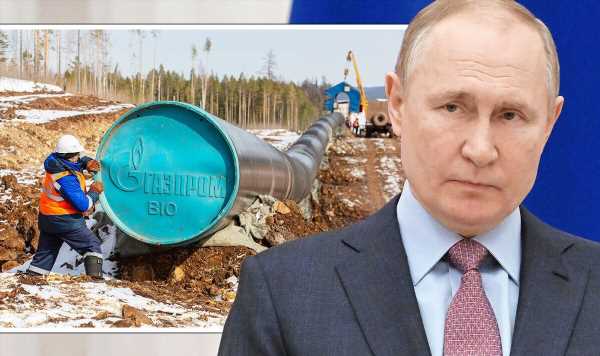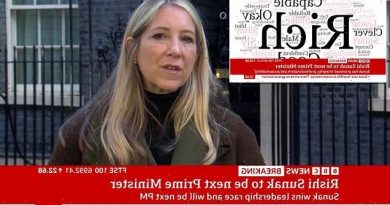Putin’s oil empire crumbling as Russia faces biggest hammer blow since Soviet collapse
Putin: Russian public 'disillusioned' with leader says Rifkind
We use your sign-up to provide content in ways you’ve consented to and to improve our understanding of you. This may include adverts from us and 3rd parties based on our understanding. You can unsubscribe at any time. More info
This comes as Moscow feels the bite of Western sanctions aimed at crippling Russia’s ability to wage war in the neighbouring country. The US has instituted a ban on all Russian oil imports, and the UK has committed to ending its dependence on Russia by the end of the year.
The EU is also mulling over an outright ban on Russian oil sources.
A document seen by Reuters shows Russian oil output could fall to between 433.8 million and 475.3 million tonnes this year, down from 523 million tonnes in 2021.
This is the lowest output for nearly twenty years and the most significant decline in production since the immediate post-Soviet era.
Output began to dip within days of the February 24 invasion, falling by 7.5 percent within approximately three weeks.


The EU is preparing a sixth round of sanctions which is likely to include specific provisions against Russia’s oil industry.
The EU relies on Russia for around 27 percent of its oil supply.
Valdis Dombrovskis, the Commission’s executive vice-president, said the sanctions would include “some form” of measures on oil.
He told The Times: “We are working on a sixth sanctions package and one of the issues we are considering is some form of an oil embargo.


“When we are imposing sanctions, we need to do so in a way that maximises pressure on Russia while minimising collateral damage on ourselves.”
One EU diplomat told POLITICO: “The Commission has to look for the right balance between a package which is solid enough on the one hand but on the other hand workable for the more reluctant countries.”
Hungary and Europe’s largest economy, Germany, have voiced their opposition to an immediate ban on Russian imports as they fret about the consequences on their domestic economies.
For Germany, an oil embargo is only viable when there is an alternative source of oil, Berlin said this week.
DON’T MISS:
Ukraine LIVE: Russia threatens to bomb Britain in ‘immediate’ attack [LIVE]
Putin’s humiliated losses laid bare – FULL LIST [REVEAL]
Kremlin makes embarrassing blunder as Russia targets hundreds of MPs [REPORT]

German Economy Minister Robert Habeck said on Tuesday that the country hoped to find this very solution within a matter of days.
He said that an embargo “has become manageable for Germany” after reducing its dependence on Russian exports to a quarter of its total imported supply last month.
In an update, Mr Habeck said the figure was now at 12 percent, and all Russian imports were concentrated in one refinery.
Before the Russian invasion, Germany relied on Russia for around a third of its supply.
The UK Government announced on March 8 that the UK will “phase out” Russian imports by the end of 2022, as the UK works “closely with the US, the EU and other partners to end our dependence on Russian hydrocarbons”.
Prior to this measure, Russian imports made up around eight percent of the UK’s supply, with Prime Minister Boris Johnson saying the policy would be “another economic blow to the Putin regime”.
The Government said it was “confident” that the goal could be achieved by the end of the year.
Source: Read Full Article



